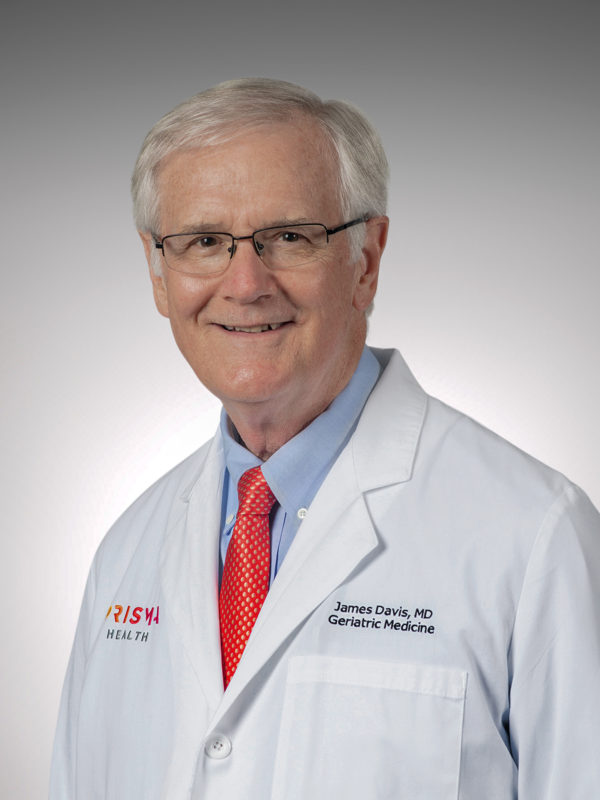When to be concerned about memory loss
You walked into a room and forgot what you were coming to get. Or maybe you were chatting with a friend and lost track of what you were trying to say. Should you be concerned? James Davis, MD, explained what is considered normal as your brain ages and when there might be cause for concern.
Is memory loss normal when aging?
“The brain is the controlling organ for the rest of the body, and it ages just like any other part of the body,” Dr. Davis said. A normal aging brain will experience:
- Mild memory loss
- Minor word finding difficulties
- Slow memory retrieval
- Changes in speed and efficiency of thought
It is important to understand that a normal aging brain will experience these things, but they shouldn’t cause confusion, disorientation or problems in everyday functioning. With an aging brain, you can still learn new things, create new memories, improve your vocabulary, develop your language skills and more.
Dr. Davis said brain changes begin about age 55 and progress through the rest of a person’s lifespan. “These changes aren’t all negative. They probably have a survival benefit, causing us to be less impulsive and less likely to jump to conclusions,” he said.
What is dementia?
Dementia is an acquired disorder that develops over time. It involves impairment in two or more domains of cognitive function, including memory, attention, concentration, orientation, language and behavior. This impairment causes problems with daily living, such as getting lost while you’re driving or not being able to pay bills on time.
What is Alzheimer’s disease?
Alzheimer’s disease, the most common cause of dementia, is a disease that affects the thinking brain.
“Most cases of Alzheimer’s disease are sporadic and influenced by multiple factors, both inherited and non-inherited. There really isn’t one true cause that can be pointed to when it comes to Alzheimer’s,” Dr. Davis said.
He provided a list of risks to brain health that can play a factor in the development of Alzheimer’s disease. They include:
- Some medicines, or improper use of medicine
- Smoking
- Excessive use of alcohol
- Heart disease, diabetes and other chronic conditions
- Poor diet
- Insufficient sleep
- Lack of physical activity
- Little social activity and being alone most of the time
- Brain injury
“Family history can increase your risk of developing of the disease, but it doesn’t mean you’re definitely going to have Alzheimer’s disease because your mother had it. It just means you need to do other things to lower your risk,” Dr. Davis said.
How can you prevent dementia?
Early recognition of risk factors and adjusting threats can help with changing habits that can lead to dementia later in life.
Some ways you can reduce your risk for dementia include:
- Preventing vascular disease by lowering your blood pressure, reducing cholesterol levels and managing diabetes
- Avoiding toxic substances such as alcohol, tobacco and drugs
- Treating diseases such as sleep apnea, which can lead to low oxygen levels, and atrial fibrillation
- Avoiding trauma by preventing falls or wearing protective gear
Dr. Davis said there is no evidence that vitamins, supplements or hormones can improve brain health, but population studies have shown there are several lifestyle changes that might help. They include:
- Regular exercise – A 30-minute walk a day is a good start
- Social engagement – People who have meaningful activities, like volunteering, are happier and healthier
- Diet – What’s good for your heart is probably also good for your brain
- Brain training – Studies have shown improvement in some functions among healthy people who do crossword puzzles and Sudoku
If you know of someone complaining of or exhibiting memory problems – or if you believe you are experiencing memory problems – don’t ignore them. Talk to your doctor.
Find a doctor
Whether you’re looking for a primary care physician or need to see a specialist, we’re here to help with experienced, compassionate care near you.
Find a Doctor

